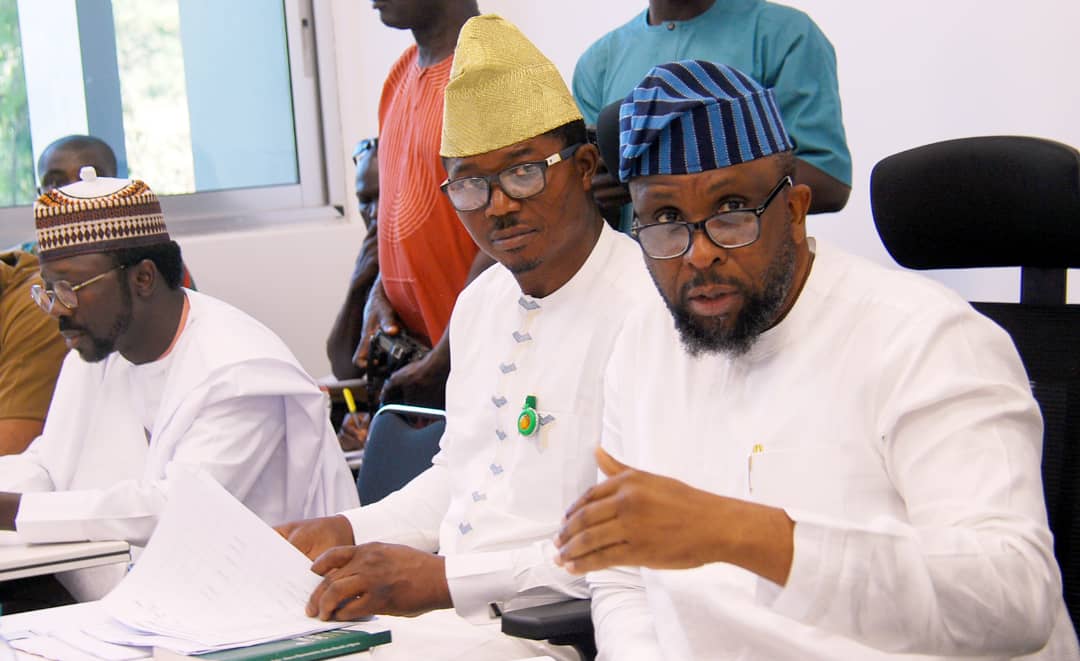News
ICPC launches SAV to enlist youths in fight against corruption

The Independent Corrupt Practices and Other Related Offences Commission (ICPC) has launched the Students Anti-Corruption Vanguard (SAV), an initiative aimed at empowering young Nigerians to take an active stand against corruption in the country.
Addressing the new members of the Vanguard, who are students from various tertiary institutions, on Tuesday in Abuja, the Secretary to the Commission, Barr. Cliford Oparaodu, stated that youth play a critical role in combating corruption and fostering a culture of transparency and integrity in society.
The Secretary noted that 60% of the country’s population is under the age of thirty, with the passion, energy, and creativity needed to address corruption.
Represented by Mr. Demola Bakare, Acting Director of Public Enlightenment and Education, he stressed that corruption has long hampered national development, eroded public trust, and perpetuated poverty, inequality, and injustice, making it crucial for the younger generation to understand its impact and be actively involved in the fight.
“Education and awareness are powerful tools in combating corruption. As young Nigerians, we must strive to educate ourselves about the detrimental effects corruption has on our society.
We must understand that corruption not only stifles economic growth but also perpetuates poverty, inequality, and injustice. By equipping ourselves with this knowledge, and building capacity for anti-corruption, we can become advocates for change, spreading awareness among our peers, families, and communities,” he said.
Oparaodu also highlighted the role of technology, encouraging youths to leverage their technological skills to enhance transparency and accountability. “Embracing technology can be a game-changer in our fight against corruption. We are living in an era of unprecedented technological advancements, and Nigerian youths have proven themselves adept at utilizing these tools.
We must harness the power of technology to increase transparency, enhance accountability, and improve governance. Mobilizing our coding skills, data analysis abilities, and social media prowess, we can expose corrupt practices, track public spending, and facilitate citizen participation in anti-corruption initiatives,” he remarked.
The Secretary also emphasized the importance of youth engagement in politics, advocating for ethical leadership, and holding elected officials accountable.
“As young Nigerians, we must challenge the status quo, advocate for ethical leadership, and demand accountability from our elected representatives,” he added.
He concluded by calling on the youth to unite, collaborate with civil society, and work towards a corruption-free Nigeria.
News
See Photos of World’s Tallest and Shortest Women Meet for Afternoon Tea in London

The world’s tallest woman and the world’s shortest woman met for the first time this week, sipping tea from china cups — and bonding over what they have in common while celebrating their differences.

Jyoti Amge, shortest woman, and Rumeysa Gelgi, tallest woman, meet for the first time and share afternoon tea
Jyoti Amge, shortest woman, and Rumeysa Gelgi, tallest woman, meet for the first time and share afternoon tea

Jyoti Amge, shortest woman, and Rumeysa Gelgi, tallest woman, meet for the first time and share afternoon tea
Rumeysa Gelgi, from Turkey, stands at 7 feet and 0.7 inches, while Jyoti Amge, from India, is 2 feet and 0.7 inches.
Jyoti Amge, shortest woman, and Rumeysa Gelgi, tallest woman, meet for the first time and share afternoon tea

Jyoti Amge, shortest woman, and Rumeysa Gelgi, tallest woman, meet for the first time and share afternoon tea
Jyoti Amge, shortest woman, and Rumeysa Gelgi, tallest woman, meet for the first time and share afternoon tea
Jyoti Amge, shortest woman, and Rumeysa Gelgi, tallest woman, meet for the first time and share afternoon tea

Jyoti Amge, shortest woman, and Rumeysa Gelgi, tallest woman, meet for the first time and share afternoon tea
“You’re so beautiful,” said Gelgi, 27. “Thank you — you too,” replied Amge, 30.
Their meeting, over afternoon tea at London’s Savoy Hotel on Tuesday, came ahead of Guinness World Records Day, which is held annually in November to mark record-breaking achievements and encourage people to attempt records. The pair have been honored as “World Record icons” in the 70th anniversary edition of the Guinness World Records book.
Story continues below advertisement
“Meeting Jyoti for the first time was wonderful,” Gelgi said in a release Wednesday. “She’s the most gorgeous lady. I was waiting to meet her for a long time.”
Gelgi said the pair bonded over their love for makeup, jewelry and doing their nails.
Video footage showed them sitting down for tea, cakes and sandwiches stacked next to them, with the London Eye visible from the window.
Amge said in the release that she was “so happy to look up” and see the world’s tallest woman, whom she called “good-natured.” She added that it was difficult at times for the pair to make eye contact “due to our height difference.”
“Guinness World Records is all about celebrating differences,” its editor in chief, Craig Glenday, said in a statement ahead of Guinness World Record Day, which is on Thursday.
“By bringing together these two amazing, iconic women, they can share their perspectives on life with each other and, also, with us,” Glenday said.
Gelgi’s record-breaking height is due to a rare genetic condition called Weaver syndrome, which causes rapid growth, according to the National Organization for Rare Disorders.
Story continues below advertisement
The primary symptom is growth and bone development that occurs faster than usual, making those affected taller than average. People with Weaver syndrome may have rigid muscles and difficulty extending their elbows or knees.
Gelgi used a walking aid for support during the pair’s meeting. Her case of Weaver syndrome was the 27th ever diagnosed and the first in Turkey, according to Guinness World Records.
Weaver syndrome is generally caused by changes in the EZH2 gene, according to the NORD, though the organization notes that some people with Weaver syndrome do not have a mutation in the gene.
Story continues below advertisement
Amge, an actor who played the character of Ma Petite in the television series “American Horror Story,” has a genetic growth disorder that occurs in the early stages of fetal development, known as achondroplasia.
According to Johns Hopkins, the condition causes shorter bones, abnormally shaped bones and shorter stature. While the genetic defect can be passed from parent to child, in about 80 percent of cases, achondroplasia results from a spontaneous mutation that occurs in the developing embryo.
On Thursday, Gelgi shared photos on Instagram of the two exploring London despite the cold weather, posing side by side in front of Tower Bridge.
News
Speaker Abbas Decries Gross Inadequacy In Health Sector Despite Annual Allocation

News
Reps Demand Details Of Project Undertaken From Ministry Of Solid Minerals In 2024 Budget

-

 News15 hours ago
News15 hours agoDHQ Gives Updates on on Arrest, Trial of Simon Ekpa in Finland
-

 News15 hours ago
News15 hours agoJapa: 1 of 4 Nigerians want to leave the country – NBS
-

 News14 hours ago
News14 hours agoSenate mandates military to free LGs under B’Haram control
-

 News14 hours ago
News14 hours agoOUTREACH: Senator Manu concludes 2-day ICT program for constituents, distributes over 500 laptops to students (Video/Photos)
-

 News14 hours ago
News14 hours ago2027: Obasanjo’s knock on INEC reopens push for electoral reform
-

 News15 hours ago
News15 hours agoI’m not too young or inexperienced to run for Lagos Governor – Speaker Obasa
-

 News15 hours ago
News15 hours agoSimon Ekpa Sent To Prison
-

 News15 hours ago
News15 hours agoNigerian Catholic religious Sister Uti wins $1.2 million Opus Prize








